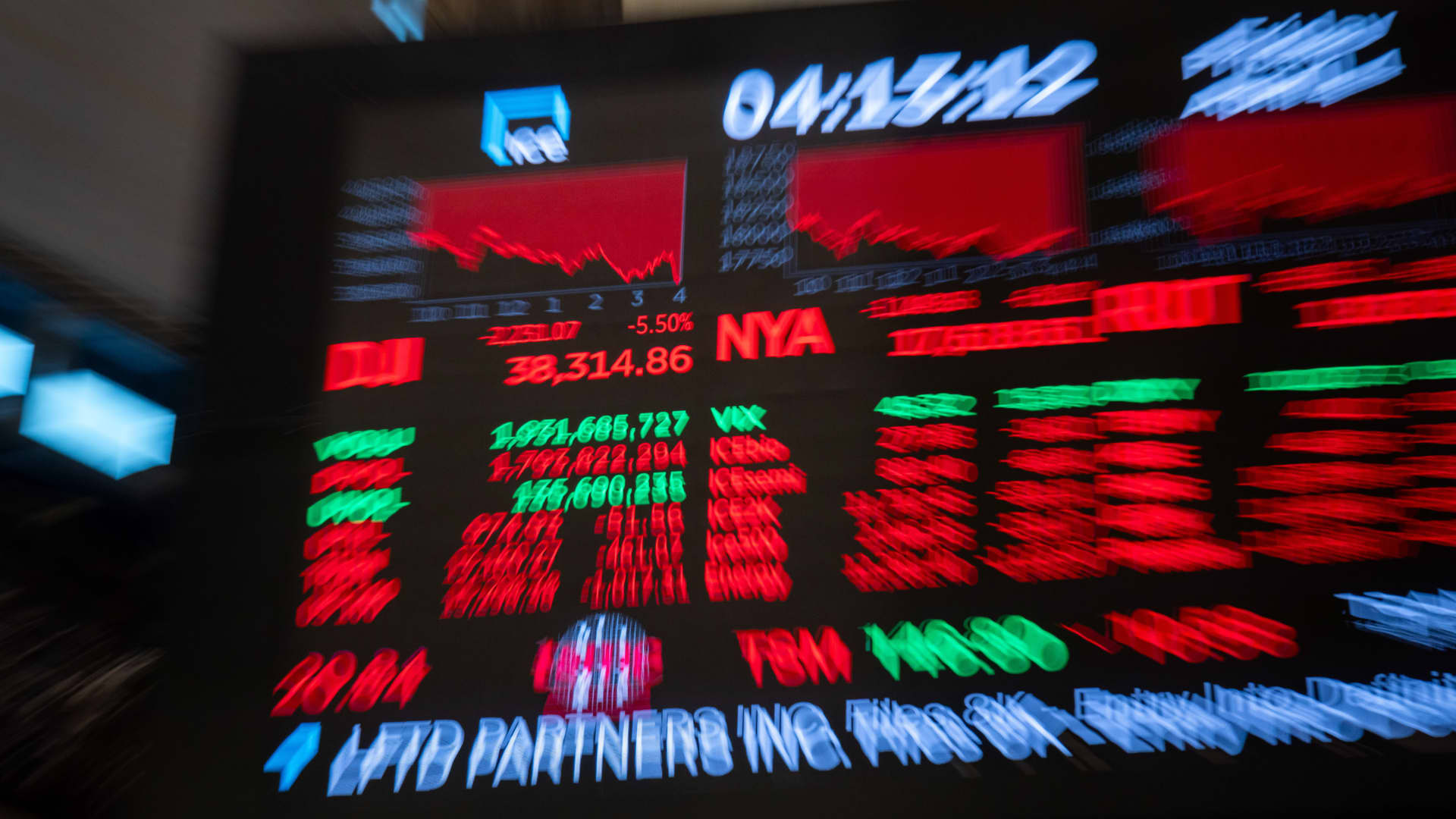Global markets are wobbling, stoking investor worries over portfolio allocation and how to navigate the current climate — sit tight, rotate into defensive stocks, or opt for cash? The turbulence is being driven by a confluence of factors ranging from stretched tech valuations to shifting rate expectations and softening global data. Gold prices have fallen over 7% since their record intra-day high on Oct. 20, bitcoin slid below the $90,000 mark on Tuesday, while stocks globally have seen sharp declines. The MSCI world index has lost 3.5% over the past four sessions. “The risk-off [has] mood broadened beyond technology, pulling down gold, cryptocurrencies, and several other sectors,” said Shihan Abeyguna, managing director for Southeast Asia at Morningstar. The policy backdrop is adding strain. Expectations for a December rate cut by the U.S. Federal Reserve have been fading as officials appear split over the need for more easing. The probability for a rate cut has fallen from 100% a month back to 67% a week ago and is now at about 47%, according to the CME FedWatch tool. Steve Sosnick, chief strategist at Interactive Brokers, said investors are finally waking up to the idea that the period when “risk was almost uniformly rewarded” may be ending, pointing to the record highs that global stock markets have notched this year. Avoid overreaction — diversify Abeyguna advises investors to keep three principles front of mind: avoid overreacting to headlines, rebalance while sticking to one’s strategy, and look for opportunities where markets have overcorrected compared to long-term fundamentals. While bitcoin has entered negative territory, U.S. equities, despite the recent slump, remain firmly higher year to date. The S & P 500 is up over 13% this year, while the Nasdaq and the Dow have gained nearly 17% and over 9%, respectively. Rather than exiting stocks, investors should examine how concentrated their portfolios have become around AI winners, experts said. Abeyguna told CNBC he prefers consumer cyclicals: factory automation, beverages, alcohol as undervalued beneficiaries of “AI-enabled efficiencies.” Select AI leaders remain appealing, with TSMC, Tencent and Alibaba still the favorites. Regionally, his Asia model portfolio is moderately underweight U.S. equities, neutral on Europe and Asia as rebounds in Korea and China this year have narrowed valuation discounts despite the recent downturn. .SPX YTD mountain S & P 500 is still up year-to-date Steve Brice, global CIO at Standard Chartered, also stresses that markets are still up for the year. He retains a small overweight position on equities relative to credit and urges investors to “stress-test their portfolios” to check if they can withstand major drawdowns, as seen during the 2000-03 dotcom bust and 2008-09 financial crisis, and adjust risk accordingly, he added. Brice remains overweight on U.S. and Asia ex-Japan stocks. For Asia, he cites “relatively cheap valuations, easier local policy settings … and a weaker USD,” as working in favor of equities, referring to relatively accommodative central-bank stances and ongoing fiscal support in parts of Asia . Within equities, he favors tech globally despite elevated valuations, but balances that in the U.S. with overweight positions in utilities and healthcare. Brice also highlighted gold as a staple holding: “Gold represents a 6%-7% allocation in our portfolios which has certainly served us very well.” State Street’s Angela Lan emphasizes the importance of diversification: “Diversification matters now more than ever,” especially as U.S. market concentration rises and global dynamics shift. Her team favors U.S. equities, Japan and emerging markets, while seeing non-U.S. developed markets as “more challenged.” In fixed income, she prefers the long end of “high-quality sovereign debt.” Bonds with 10 years or higher maturity typically make up the long end of the yield curve. Some corners of the market look relatively risker and vulnerable, said market watchers. Sosnick from Interactive Broker said that crypto’s sharp declines signal fading risk appetite and warned that investors should be cautious around the most speculative corners of the market. While tech has seen a slide, valuations in some companies still look stretched. Abeyguna’s team recently downgraded Samsung and SK Hynix, flagging stretched valuations and warning that memory-chip names could face further downside. David Roche of Quantum Strategy advised investors to play it safe by focusing on gold and defense stocks, while warning on CNBC’s “Squawk Box Asia” that bubbles in AI and credit markets were beginning to burst, posing serious economic risks.





